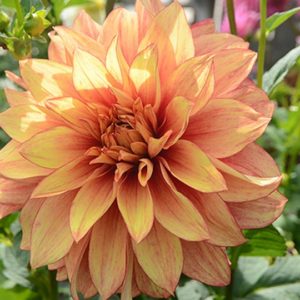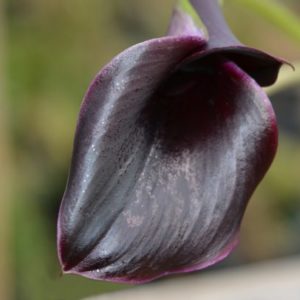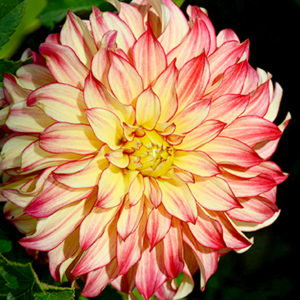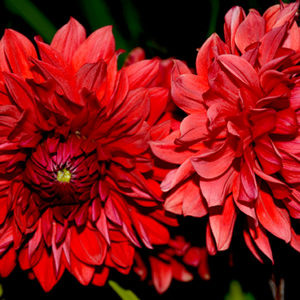Description
 Pumpkin, Small Sugar (aka Pie)
Pumpkin, Small Sugar (aka Pie)
Squash, beans and corn, known as the “Three Sisters” comprised the trinity that was the staple diet of ancient America. Unbelievably, remains of wild or, possibly, cultivated squash have been found in Mexico that date to 9000 BC. Similar archaeological evidence has been unearthed in South America, Central America and northern, North America. The wild varieties of squash were quite small and unpleasantly bitter tasting. Ancient peoples were not attracted to these vegetables for food. Instead, it is hypothesized, that ancient peoples collected the squash and dried them to make rattles and instruments for ceremonies and containers for storage and eating. Eventually, the ancient peoples came to appreciate and value the squash seeds which were rich in nutritious oils. After, perhaps centuries, ancient farmers began to select for and cultivate varieties of squash that produced pleasant tasting flesh.
The squash family can generally be divided into two classes – winter squash and summer squash – and fundamentally four species: c. maxima, c. argyrosperma, c. moschata and c. pepo. Of the four species, three represent both summer and winter squash. The maximas are exclusively winter squash.
C. pepo is the family of squash that includes zucchini and most of the varieties of summer squash. These squash grow on bushy or vining plants and are eaten in their immature stage when they are still tender. The group also includes many of the pumpkins used for pies and carving as Jack O’ Lanterns. Acorn squash are also part of this group.





